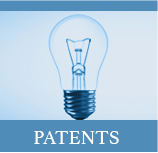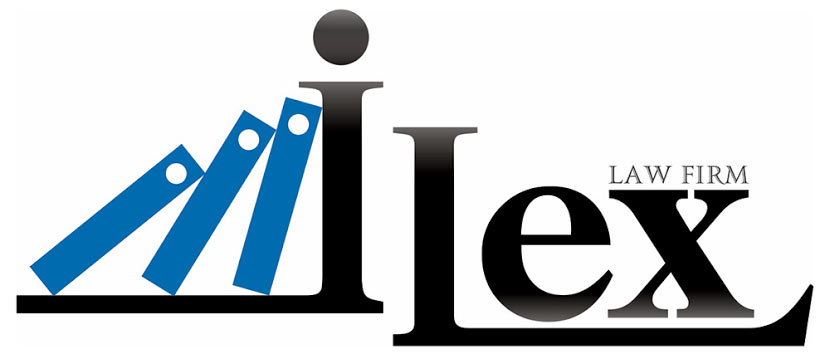Looking for an experienced and cost-effective franchise lawyer in Armenia? Look no further than iLex Law firm. Our franchise lawyers can assist on all franchise matters! Entering into a franchise agreement is a big decision. It’s vital that you have the franchise agreement and any related disclosure documents reviewed by a lawyer with expertise in the field of franchising.
The iLex Law Firm team includes a number of corporate lawyers with particular expertise and experience in both drafting and reviewing franchise agreements. Each of these lawyers has experience working on franchise related matters
Whether you are:
entering into a franchise agreement;
an existing franchisee or franchisor;
expanding your business into a franchise; or
have a franchise dispute,
Our lawyers can review your franchise documentation whether you’re based locally or whether you’re based abroad.
If you’re considering setting up or entering into a franchise in Armenia, make sure you work with a franchising specialist.
We have been helping with franchising in Armenia such companies as ALDO, NEXT, DEBENHAMS, BALDI, RIVER ISLAND etc.
Trademarks arise from using words, logos, and the like in connection with selling goods and services. Most registrars award domain names on a first come, first served basis and do not undertake a complete trademark search for each proposed registration. the same is sitation with .am domain.
Consequently, significant legal issues involving trademark or trade name conflicts can arise from registration of a domain name.
Similar, even identical, word marks can be simultaneously registered as trademarks by unrelated businesses on unrelated goods.
You should expect to own and use your domain name. However, a trustworthy and knowledgeable lawyer may be needed if you are engaged in a dispute, or your desired domain is owned by a "cybersquatter". Cybersquatters can happen to any individual or business, and can result in one using your ideas, trademarks, or copyrights for personal gain.
When it happens to your domain, it's a commercial threat that needs to be eliminated.
Questions to ask yourself as you consider this course:
Is it possible the registrant has trademark rights in the domain name?
Is the domain name some other name that is otherwise commonly used to identify the registrant?
Has the registrant made use of the domain name in connection with a bona fide sale of goods or services prior to dispute?
Is the registrant using the mark in a noncommercial or fair use way at a web site accessible at the domain name?
Is the registrant attempting to divert consumers from the trademark owner's website in an attempt to harm or tarnish the trademark mark?
Has the registrant offered to sell the domain name to the trademark owner (or anyone else) for financial gain without having any intent to use it?
Has the registrant behaved in a pattern of registering and selling domain names without intending to use them in connection with the sale of goods or services?
Contact iLex Law Firm Today
If you know of a domain name that is infringing on your trademark or person, let us help you take control of this case. Or, if you have registered a domain name that is being used properly, but a large corporation is trying to obtain it, you need our expertise to help you maintain control of your rights.
Protecting Your Business’ Trade Secrets
Many times, a company’s trade secrets are its most valuable assets. Whether it’s a formula, a method, a technique or a process of the way you do business that sets you apart from the competition, the protection of trade secrets is critical to the success of your business. Trade secret protection is completely different from other kinds of intellectual property protection and should be handled by an experienced attorney.
Non-Disclosure, Confidentiality and Non-Compete Agreements 
Non-disclosure agreements, also referred to as confidentiality agreements or NDAs, are the only way to ensure that your trade secrets are kept private. You should not share trade secrets, which include non-published patent pending inventions, with anyone who does not absolutely need to know about them. Anyone you do choose to share them with, however, should sign a non-disclosure agreement before any trade secrets are revealed.
Another important consideration in protecting your trade secrets involves employees. Competition is stiff in today’s market and businesses will do almost anything to get ahead, including poaching your employees. Some employees can have knowledge of sensitive information about their company’s processes. Non-disclosure and non-compete agreements can help to ensure that your trade secrets are safe should the employee ever choose to leave.
At iLex we represents businesses injured by trade secrets theft. Trade secrets are confidential, sensitive, and / or proprietary information that give a business a competitive advantage by being known only to the business’s insiders.
Trade secrets can be among a business’s most valuable assets. They may include, among other things:
• proprietary software
• customer lists
• designs
• ingredients
• formulae
• methods
• techniques
• processes
• devices
• patterns
Theft of Trade Secrets Litigation
Businesses that sustain losses from trade secrets theft may file lawsuits to the court. The law allows a business to file an action in state court for theft of information that:
• is not generally known in the particular area of business
• the possessors take reasonable efforts to keep secret
• provides independent current or potential economic benefit to the possessor(s) as a result of its secrecy, and
• cannot be easily (and legally) discovered or reverse-engineered by others who would also derive economic benefit from its use
If your artwork is not used as a trademark or is otherwise not subject to trademark registration, it may be eligible for copyright protection.
We provide guidance from A to Z on the copyright process, ensuring that your intellectual property is protected to the full extent of the law.
In Republic of Armenia Copyright extends to works of scholarship, literature, and art that are the result of creative activity regardless of the use and merits of the work and also to means of its expression.
The work must be expressed in audible, written or other objective form allowing the possibility of its perception.
A work in written form or otherwise expressed on a material carrier (manuscript, typescript, musical notation, recording with the use of technical means, including sound or video recording, fixation of an image in two dimensional or volume-spacial form, etc.) shall be considered as having objective form regardless of its accessibility by third persons.
An audible work or other work not expressed on a material carrier, shall be considered to have objective form if it has become accessible for perception by third persons (public speaking or public performance, etc.)
Copyright extends both to works published (made public, released to the public) and also to unpublished works.
Copyright does not extend to ideas, concepts, principles, systems, proposed solutions, nor discoveries of objectively existing phenomena.
Types of Objects of Copyright
The objects of copyright include:
1) literary works (literary-artistic, scholarly, instructional, publicistic, etc.)
2) dramatic and film script works;
3) musical works with words and without words;
4) musical-dramatic works;
5) choreographic works and pantomimes;
6) audiovisual works (motion picture, television, and video films, slide films, transparency films and other motion picture, television and video works), radio works;
7) works of painting, sculpture, graphics, design and other works of fine art;
8) works of applied decorative and stage-setting art;
9) works of architecture, city planning, and garden and park art;
10) photographic works and works made by modes analogous to photography;
11) geographic, geologic, and other maps, plans, drawings, and plastic works related to geography, topography, and other sciences;
12) programs for computers of all types, including applied programs and operating systems;
13) kinds of fonts;
Arising of Copyright. Presumption of Authorship
Copyright to a work of scholarship, literature, or art arises by virtue of the fact of its creation. Neither registration of the work nor the observance of any other formalities is required for the arising of copyright.
A person indicated as author upon first publication of a work is considered its author unless proven otherwise.
While filing a patent for your invention, there are several critical aspects to be followed especially in drafting the claims, which define the scope of the invention. Drafting patent specification is an art by itself, and requires the expertise of skilled professionals in this field. 
Documents Needed (Filing Requirements)
1. Application
2. Description
3. Claims
4. Drawings /if applicable/
5. POA
6. Payment receipt of the State Fee
All documents shall be in Armenian language or translated
The application content and form must comply with the requirements of the Law of the Republic of Armenia of June 10, 2008, on Inventions, Utility Models and Industrial Designs and of the Rule established by the State Authorized Body- AIPA. It shall be legible and the description of the invention, utility model or industrial design shall be clear, which is satisfactory for the expert of the field to start the examination.
The application shall be filed in writing, either directly or by post, by facsimile machine or by other electronic means of communication. The rule of filing an application and the attached documentation by electronic means of communication shall be established by the AIPA.
